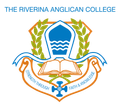DIRECTOR OF STUDENTS REPORT

Reflecting on reports - a powerful exercise in mindfulness
Semester 2 is now in full swing and, for some, the Semester 1 progress report will have been filed away and forgotten. At The Riverina Anglican College reporting on students’ progress is a very serious business and one that staff work very hard at making meaningful and purposeful. Although student reports are sent to parents as part of our commitment to them as partners in student learning, progress reports should really be read by both students and parents, preferably together.
Student report writing can be seen as an important moment of self-reflection for the whole school. Teachers use report writing as a moment to reflect on their students' progress, their practice, the success of their assessment tasks, the learning resources they used and how they can better support their students in the future. For students, it's important to note that our reports are written by teachers about their progress. It makes sense that students would use their report as an impetus for self-reflection. Self-reflection like this can be powerful when students look beyond grades and take the time to read the comments made about learning habits, engagement with learning and how to improve. It is the collective comments in a report that give the clearest indication of where a student is really at in terms of their learning.
Taking a moment to reflect
Self-reflection is an important part of mindfulness which is an essential part of personal development and growth. Taking time to reflect on where you are at, where you would like to be and what you can do to get there is extremely empowering. Self-reflection that is purposeful and positive is an empowering life habit that can lead to long-lasting gains throughout a person's life.
To make self-reflection on reports effective and powerful students should set aside some time to read all their report comments and take note of their performance by:
- Appreciating the positive comments and recognising their strengths.
- Identify the comments that relate to learning habits and check these against their ATL’s (Attitudes to Learning). Where is room for improvement?
- Think about the subjects they like and reflect on the habits and actions that make that subject enjoyable.
- Read the recommendations for improvement and look for trends. Identify one or two that could be acted on straight away. Take a moment to reflect on how this will look in class and how this will positively impact learning in the coming semester.
Self-reflection like this not only improves self-awareness but also self-esteem as students take ownership by making decisions about their life. Purposeful self-reflection like this also enhances student relationships with teachers, peers and parents.
Most importantly, self-reflection helps students to be ‘in the moment’ when they are learning as they have already made decisions about their participation, their actions and their learning.
Ross Kennedy | Acting Director of Students

